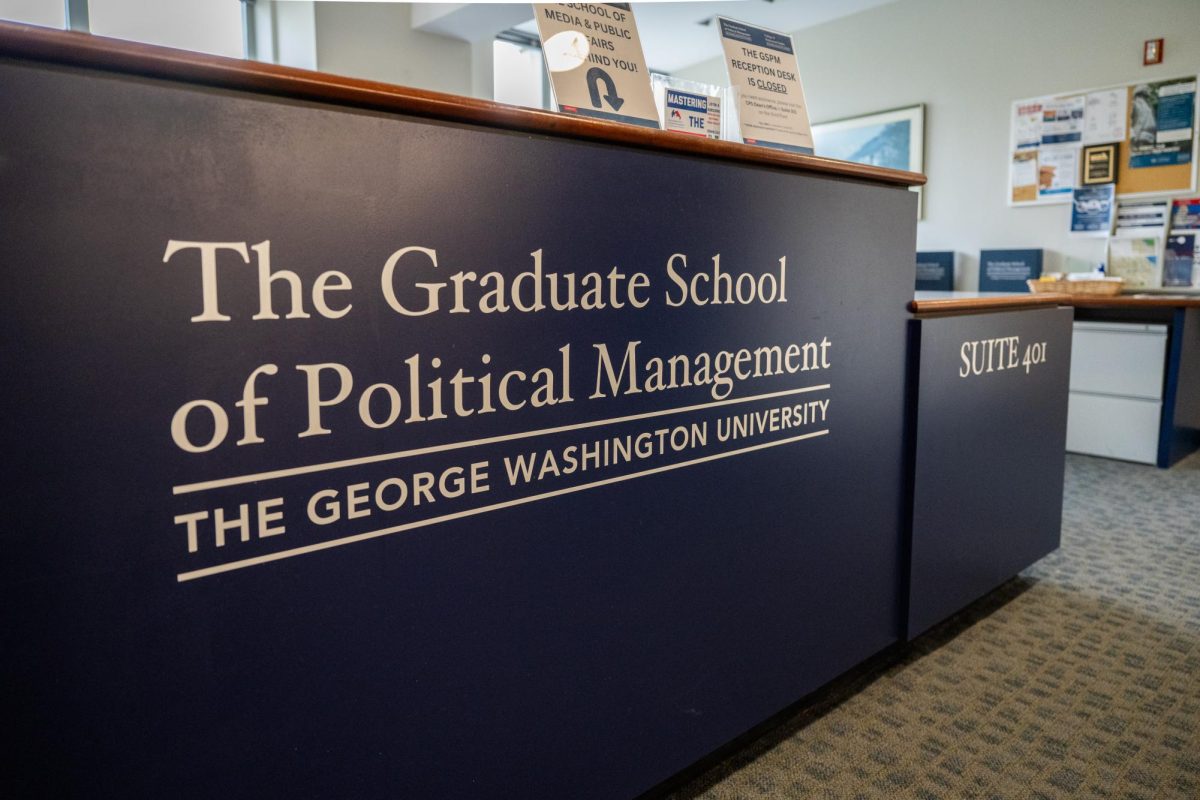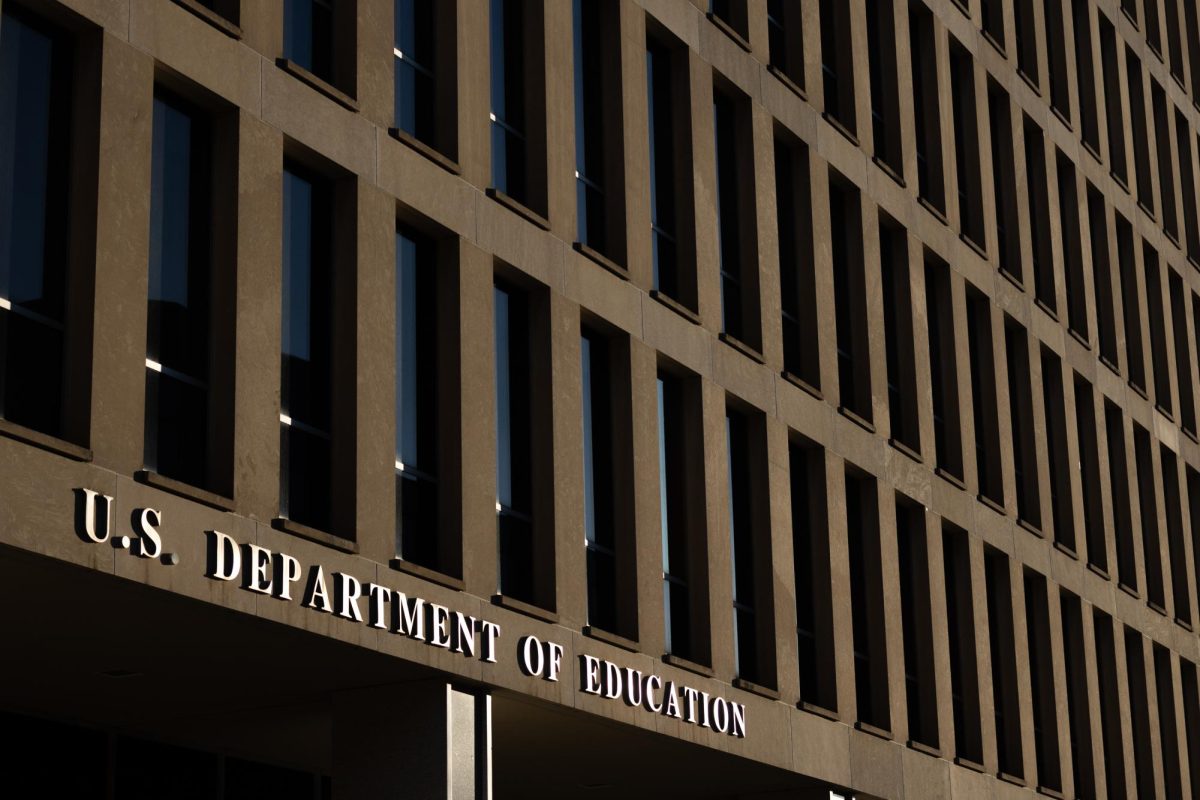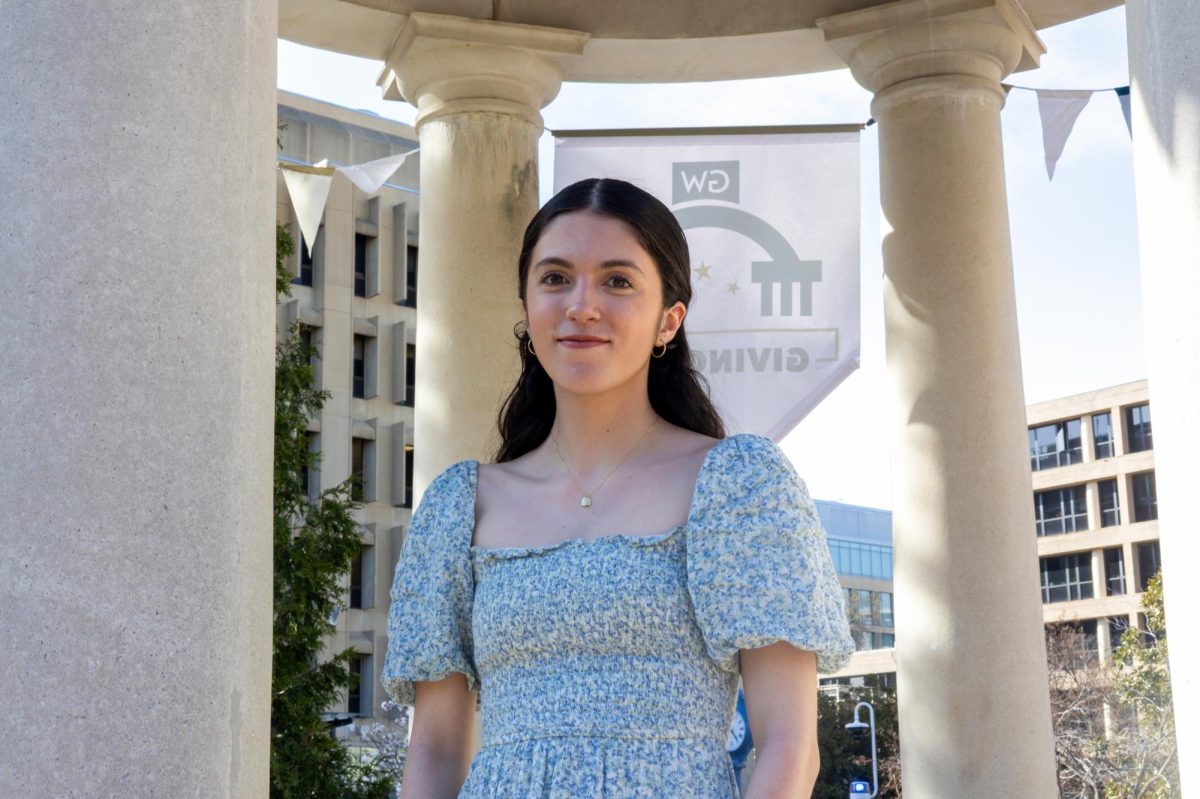Updated: August 22, 2024, at 8:27 p.m.
The Graduate School of Political Management revamped its public relations master’s degree program this fall to better align the curriculum and format of the program with the demands of the communications industry.
GSPM — which is housed in the College of Professional Studies — rebranded its Master’s of Public Administration in Strategic Public Relations to the new title of Public Relations and Communications, hired a new program director, adopted a synchronous online learning format and expanded course options and concentrations. Lawrence Parnell, a professor of strategic communications and the program’s former director, said discussions about program modifications and its future occurred last academic year while he was still director to modernize the program ahead of his departure.
Parnell said he spoke with CPS Dean Liesl Riddle, faculty members, alumni and industry leaders for feedback on the program and to identify skills that employers seek out from communications professionals. He said he then led a committee of the CPS academic programs team, industry leaders and other GW officials to use the feedback to change the program “very aggressively” and add concentrations and logistical modifications, like the synchronous online learning format.
“It’s very much what I spent the last year doing, in addition to my responsibilities for teaching, was redesigning this curriculum so that it was ready for the future and I could feel comfortable stepping away from it knowing it was well positioned for the future,” said Parnell, who was the program’s inaugural director after he joined GSPM in 2008.
GSPM, CPS and the University as a whole have seen a decline in graduate student enrollment over the past decade. GSPM’s enrollment dropped from 386 students in 2013 to 171 students in the spring 2024 semester, according to the enrollment dashboard. The University began its “Rev Up” marketing campaign in fall 2023 to advertise its graduate degree programs and certificates around the D.C. area as graduate enrollment waned.
Riddle said the changes to the program create the opportunity to redefine CPS and GSPM’s academic offerings and match them with demands from the industry. She said CPS aims to attract a broader range of students with the expanded offerings and rebranding.
“By adopting the new curriculum and name, we are not only embracing the broader spectrum of opportunities within the industry but also making it easier for prospective students and employers to understand the program’s focus,” Riddle said in an email.
The new program curriculum adds three concentrations in government and public affairs and corporate and nonprofit communications with a set of core classes and specialized electives targeted to each concentration. Classes offered during the fall 2024 semester include two core courses of the new curriculum, two core classes from the old curriculum and one elective for the corporate communications concentration.
The corporate communication concentration features classes like Corporate Communications and Corporate Public Affairs while the nonprofit track includes classes like Nonprofit and Association Communication Strategies and Communicating for Social Change. The government and public affairs concentration consists of classes like Applied Political Communications and Social Issues and Public Policy.
Riddle said discussions about changes to the public relations master’s degree program centered around staying up to date with changes in the communications industry and the needs of students.
“The primary goals of expanding the program were to enhance its relevance and impact, broaden its accessibility, and ensure that our offerings are aligned with the latest trends and demands in the field,” Riddle said in an email.
Officials announced Maryland State Delegate Lesley Lopez as the new director of the Public Relations and Communications program last month. She previously served in communications and journalism roles, including as the head of global communications for the US-China Business Council, a nonprofit promoting trade with China, from 2015 to 2017 and stints with ABC’s This Week with George Stephanopoulos, BBC and CNN.
Lopez said part of the revamped curriculum adds special topics classes that allow the program to adapt course topics quickly to industry trends without having to go through the course approval process, which requires multiple rounds of approval from deans, the provost’s office and the registrar. The new curriculum also offers one-credit, skill-based classes to allow students to learn everyday skills in communication, like creating social media videos, that might not be covered in full, semesterlong classes.
“I’m calling them the digital storytelling lab series, where it’s basically like how to create short content, how to deal with whatever X, Threads changes might be going on, how do communications and digital organizing kind of connect, understanding analytics,” Lopez said.
Lopez said the new program will offer classes synchronously online because students liked the greater flexibility of taking virtual courses after experiences with online learning during the COVID-19 pandemic, but she said she hopes to get the program to have in-person classes. The previous iteration of the program held classes virtually asynchronous and in-person.
“People are just used to taking online classes, if you’re used to taking classes online and I think that’s what some people have become accustomed to, but there’s other folks that prefer face-to-face,” Lopez said. “I think just being really attuned with what our students want and what the demand is will help shape those decisions.”
Marie Lerch, an adjunct professor in the program, said the synchronous online format of the classes in the new program will allow her to add guest speakers, question-and-answer sessions and class discussions to her lessons.
“The new synchronous format will make our class discussions more dynamic than online posts,” Lerch said in an email. “We’ll have the ability to see and hear each other and build on ideas in real-time.”
This story was updated to correct the following:
The Hatchet incorrectly reported that the program award students Master of Arts degrees, the program awards students Master of Public Administration degrees. We regret this error.
This story was updated to clarify the following:
Lesley Lopez is a member of the Maryland House of Delegates, The Hatchet updated this story to reflect her title as a delegate.





